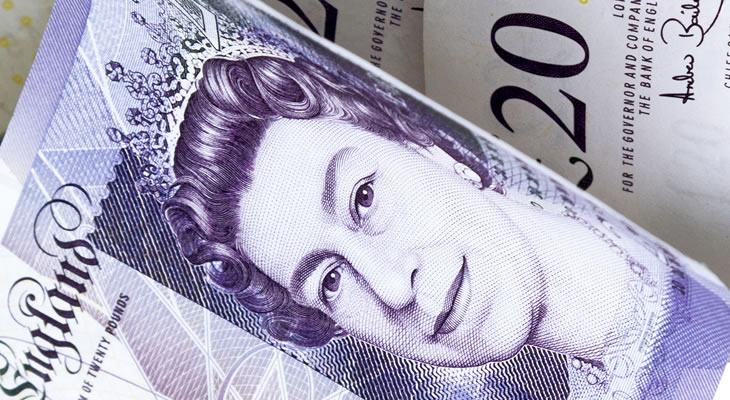Closing the week’s GBP/ZAR exchange rate movement with further volatility, the Pound had rise by 0.7% against the South African Rand.
Sterling initially declined on the morning of 20th April, following remarks from Bank of England (BoE) Governor Mark Carney.
Mr Carney dashed hopes for a May interest rate hike with cautious comments that lowered confidence in the Pound.
Following these remarks, however, BoE member Michael Saunders caused a Pound advance by backing UK interest rate hikes.
Although Mr Saunders didn’t explicitly support a rate hike as early as May, the general assumption was that he favoured such action.
(Last updated 20th April, 2018)
In a reversal of fortune, the Pound to South African Rand (GBP/ZAR) exchange rate has improved on the afternoon of 19th April.
Sterling has risen by 0.3% in the pairing, following a change of trader attitudes towards the UK economy.
There was initially a strong negative reaction when UK retail sales were reported to have slowed dramatically in March.
Since then, however, the Pound (GBP) has gained momentum against the Rand (ZAR) due to a more positive trader outlook.
One of the key changes has been the disregarding of the monthly sales data for March, which was largely blamed on freak weather during the month.
(First published 19th April, 2018)
Bank of England (BoE) Action in May could Spark GBP/ZAR Exchange Rate Volatility
The Pound (GBP) has fallen sharply against the South African Rand (ZAR) on the week starting 16th April, but has a chance at recovery in the near-future.
The latest declines in Pound exchange rates have been caused by lower UK inflation and slowing retail sales, both of which have reduced confidence among GBP traders.
Looking ahead, the Bank of England (BoE) will be making its next interest rate decision on 10th May and is expected by some to hike interest rates from 0.5% to 0.75%.
This outcome remains in doubt for some economists because of the recent inflation rate slowdown, but is still seen as a distinct possibility.
Pound traders have been waiting for interest to rise above 0.5% for almost a decade now, so a forecast-matching increase could trigger a GBP/ZAR exchange rate rally.
Accelerating UK GDP Growth could Trigger GBP/ZAR Exchange Rate Recovery
Before May’s BoE interest rate decision takes place, the Pound (GBP) to South African Rand (ZAR) exchange rate could be affected by UK GDP growth estimates.
Out on 27th April, these readings are predicted to show rising year-on-year GDP growth in Q1 2018, compared to Q1 2017.
While minor, such a report of higher expected GDP could raise demand for the Pound and trigger a GBP/ZAR exchange rate rise.
South African Rand to Pound (GBP/ZAR Exchange Rate Forecast to Rise on ZA Economic Strength
The Rand to Pound (ZAR/GBP) exchange rate has a chance at advancing in the future, if plans to revitalise the South African economy come to fruition.
The nation saw a change of leadership in February this year, with Cyril Ramaphosa taking the reins of President from the long-serving Jacob Zuma.
The ZA economy struggled under Mr Zuma’s leadership, so Mr Ramaphosa came into office promising a resurgence of South Africa’s economic fortunes.
The International Monetary Fund (IMF) has recently upgraded its South African growth forecasts for the 2018-2019 period, thanks in part to the change of leaders.
If these growth forecasts seem set to prove accurate, then the Rand (ZAR) could make a significant rise against the Pound (GBP).
Risk of ZAR/GBP Exchange Rate Decline if ZA Growth Prospects Fall Flat
Despite IMF optimism about the South African economy, aspects of its forecast mean that mean a Rand to Pound (ZAR/GBP) exchange rate rise may not be straightforward.
Highlighting the obstacles, IMF officials have stated;
‘Advancement of the outstanding reforms is critical for reinvigorating economic growth and making it more inclusive.
‘Improving infrastructure, reducing barriers to entry in key sectors, improving the efficiency of government spending and reducing policy uncertainty remain central to attracting private investment [and] raising productivity across the economy’.
If the new government seems unable to follow through on improving the ZA economy, the Pound to Rand (GBP/ZAR) exchange rate could rise in the coming months.


Comments are closed.